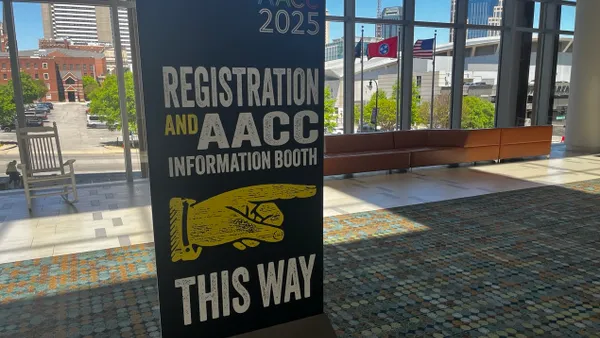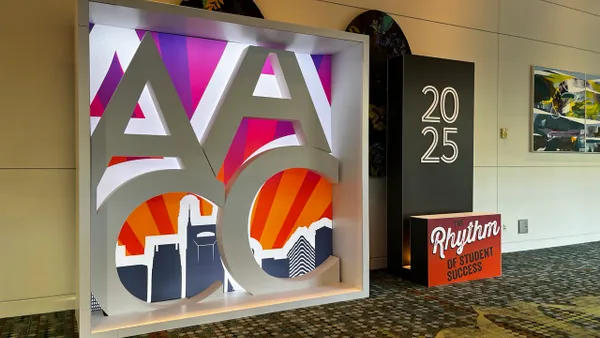Dive Brief:
- High shares of adult students take breaks from college before they earn their credentials, suggesting that it might be time to "change the narrative" about stopping out, according to a research brief this past spring from the Council for Adult and Experiential Education.
- It doesn't make sense to view adult students' progress "through the lens of a traditional-age student," as they are often juggling college with family and work obligations, the research brief said. Instead, they should be applauded for the maturity to know when they need a break from college, it argued.
- Adult learners “have lots of different responsibilities pulling at them. But they’re strongly motivated and they want to make it work,” said Becky Klein-Collins, vice president of research and impact at CAEL. “The institutions who can find ways to make it work with their lives as they currently exist are the ones that are going to really hit the spot when it comes to adult learners.”
Dive Insight:
As colleges face an approaching enrollment cliff, many higher education leaders are focused on reengaging with the large population of adults who attended college but did not earn a credential. The number of working-age students who have some college but no credential grew to about 36.8 million between July 2021 and July 2022 — a 2.9% increase from the year prior, a recent National Student Clearinghouse Research Center report found.
Those students are often perceived as having a poor track record of eventually completing their courses and earning a credential, the CAEL brief stated. More than half of adult learners stop out after the first year, as many take breaks throughout their enrollment to accommodate their many life responsibilities beyond being a student, such as being an employee, parent, and caregiver, according to the brief, which referenced survey results first published last year.
Researchers surveyed 996 adult higher ed students in the fall of 2022, about half of whom indicated they stopped out during their most recent higher ed enrollment.
Seventeen percent of surveyed students indicated they stopped out for less than one semester or term; 17% said they did so for a full semester or term; and 15% took a break for two or more semesters.
That works against those students because “stopping out before attaining a credential, or taking longer to complete a program, will make it harder for adult learners to advance in their careers even as they are shouldering the added costs related to that education,” the brief stated.
However, according to the brief, colleges can do more to meet adult learners where they are.
Researchers found adult learners made those enrollment decisions through complex calculations surrounding the amount of free time or money they had at that moment, as well as other events going on in their lives, Klein-Collins said.
The students were often overwhelmed at that moment and needed a break for any number of reasons. They faced child care issues, they felt job stress, family members needed their help, they were unsure how they'd continue to pay for college or they didn't see a clear pathway to use their education, she said.
To help adult learners in their educational pursuits, colleges could reduce or eliminate financial barriers such as enrollment fees or transcript holds over small balances — or they could offer emergency aid or mini-grants. College leaders could also develop comprehensive learner records — that shows learning in and out of the classroom — for students who start and stop college multiple times, the brief stated.
The brief recommended colleges offer campus child care services or referrals, subsidies or vouchers to help them obtain such services. And campus counseling and psychological services should be accessible to adult learners, which may require extended hours and multiple locations throughout campus.












